How Do Genetics Affect Your Teeth?

If you have a regular routine of brushing, flossing, and regular dental cleanings yet still find yourself battling dental decay, gum problems, or other dental issues, you may have your mom and dad to blame for poor teeth genetics. Unfortunately, when it comes to teeth alignment, tooth enamel, gum disease, and even missing teeth, teeth and genetics can go hand in hand. Knowing that you have a history of poor tooth genetics can help you and your dentist protect your teeth and keep you smiling, despite the genes your parents shared with you.
Gum Disease and Genetics
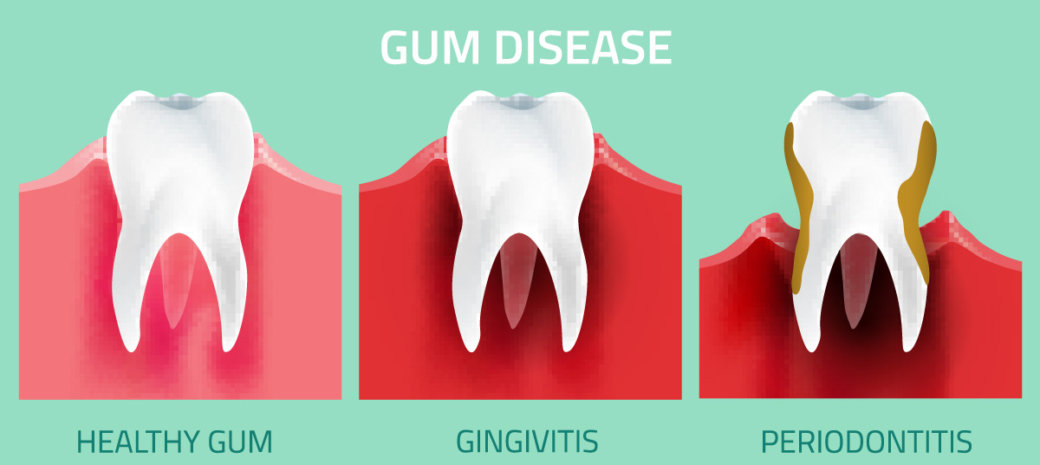
Periodontal disease, or gum disease, is a condition where the build-up of plaque along the gum line leads to infection of the gum tissue that can lead to sore, bleeding gums and possible tooth loss. Our mouths and saliva are full or bacteria that come together to form the sticky substance known as plaque. Regular brushing, flossing, and routine dental cleanings help to remove this plaque before it hardens to tartar on the teeth.
Unfortunately, for some people, no amount of brushing, flossing, or cleaning seems to be able to keep the plaque build-up under control. This is where your genetics can play a role. It is estimated that as many as 30 percent of the population are genetically susceptible to gum disease. Many patients with severe gum disease have genetics that affect the immune factor interleukin-1 (IL-1). This cytokine is involved with the body’s inflammatory response and leaves patients more prone to developing gum disease.
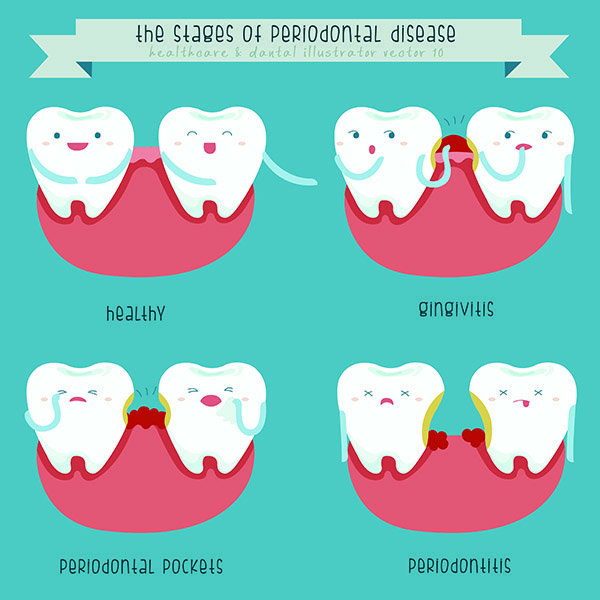
Tooth Decay and Genetics
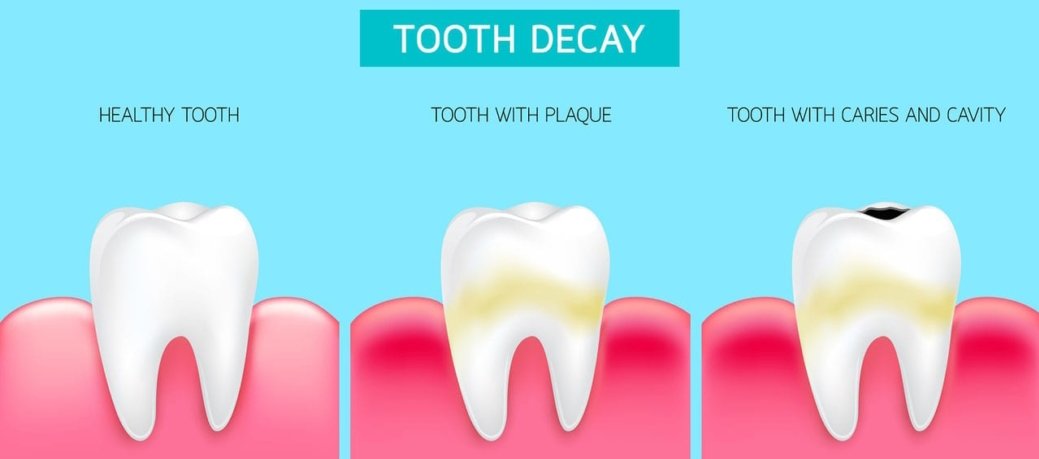
When it comes to genetics and tooth decay, it is believed that as much as 60 percent of your risk comes from what your parents passed down with the other 40 percent dependent on good oral hygiene. Your genetic make-up affects your teeth and the rate of decay in a variety of different ways.
To begin, your genetics determine the strength of your enamel. Those with softer enamel are at a higher risk of tooth decay. If parents have been told they have soft or weak enamel, it is a good idea their children at 6 – 12 years to get sealants to try and strengthen the enamel and reduce the risk.
Enamel strength is not the only genetic issue that affects tooth enamel. Researchers out of the University of Zurich found that mutations in certain proteins can lead to defects in tooth enamel, increasing your risk for genetic tooth decay. Do you find you crave sweets more than the average person? If you turn to sticky, sweet snacks on a regular basis, this could be a genetic trait passed down through generations. Regularly eating sweets can contribute to increased tooth decay as well.
Your body plays a host to a variety of different bacteria that live in the mouth. How your body responds to these bacteria depends on your immune system’s response. Unfortunately, genetics play a role in this response and some people’s immune system does not work to fight off these bacteria, resulting in an increased risk of tooth decay.
Furthermore, saliva plays an important role in the prevention of tooth decay. Healthy saliva contains enzymes and antibodies that attack the bacteria responsible for plaque, it neutralizes acids that can break down enamel, and it contains minerals, such as calcium, phosphate, and fluoride that can replace lost minerals on the surface of the teeth. Unfortunately, certain genetic factors and medical conditions can affect saliva production, resulting in an increased risk of tooth decay.
Misaligned Teeth and Genetics

Skeletal Class III malocclusion (underbite) is believed to originate from genetic and/or environmental factors.
If you have tooth crowding, spaces between teeth, overbite, or underbite, chances are that you are not the only one in your family. Genetics plays a major role in the formation of your jaw and tooth structure, so the need for braces likely comes from mom and dad. If there is a history of misaligned teeth in your family, early orthodontic treatment is recommended so that issues can be addresses when the bones and teeth are developing. This early treatment can help to avoid more serious problems down the road.
Genetics and Missing or Extra Teeth
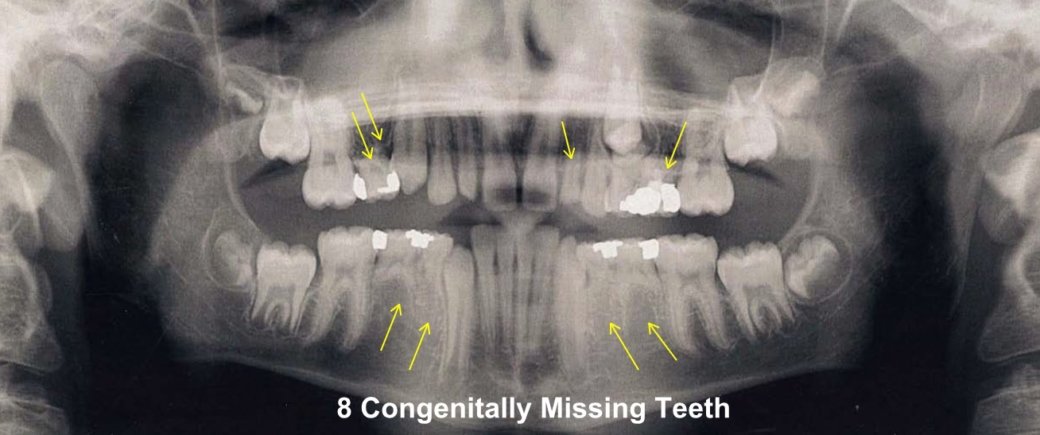
The panoramic x-ray shows 8 congenitally missing teeth- upper right first and second premolar; lower first and second premolars; upper left lateral incisor; upper left second premolar. The teeth present in their position are retained baby teeth.
When it comes to teeth formation, genetics can also play a role, with certain mutations resulting in missing or extra permanent teeth. Hypodontia is the absence of one or more teeth which can affect both the primary and permanent teeth. If a baby tooth does not erupt, chances are a permanent tooth will also not develop. Hypodontia is common, especially with wisdom teeth, followed by lateral incisors and second premolars. Hypodontia is typically caused by genetic mutations that affect the lamina, or the tissue under the gum where teeth form.

Kokich, V. G. (2004). Maxillary lateral incisor implants: planning with the aid of orthodontics. Journal of Oral and Maxillofacial Surgery, 62, 48-56.
Hyperdontia is the development of extra, or supernumerary teeth. While hypodontia is more common, hyperdontia can occur in anyone, but is more common in females and patients with Gardner’s syndrome, Down syndrome, Ehler-Danlos syndrome, or people born with cleft lip or cleft palate. All these conditions include a genetic mutation; some of them have a high incidence of hypodontia as well. Extra teeth can cause overcrowding, tooth impaction, issues with chewing, eruption into the nasal cavity, or the formation of oral cysts and tumors. In most cases, supernumerary teeth are removed to avoid any possible complications.
Know Your Family’s Genetic Teeth History
While we often think of sharing our family history when it comes to doctor’s appointments, it is just as important to share the family genetics with your dentist. Family issues with enamel, for example, can alert your dentist to the need of sealants to reduce the risk of tooth decay. History of misaligned teeth, missing teeth, or extra teeth can trigger early orthodontic treatments to avoid any possible complications down the road. While teeth genetics can play a role in your overall dental health, regular brushing, flossing, and routine check-ups should never be avoided as they are still your best line of defense when it comes to keeping a healthy smile!
Are you familiar with your family genetics that might affect your teeth and bite?
Have you ever had missing or extra teeth? Comment Below!

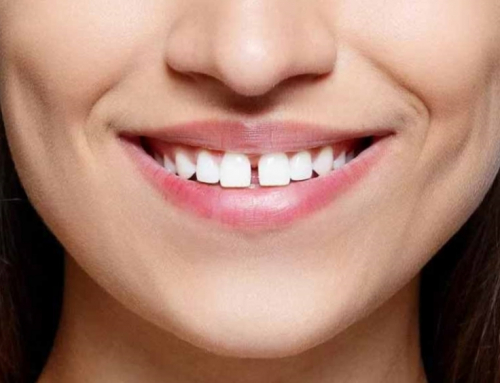
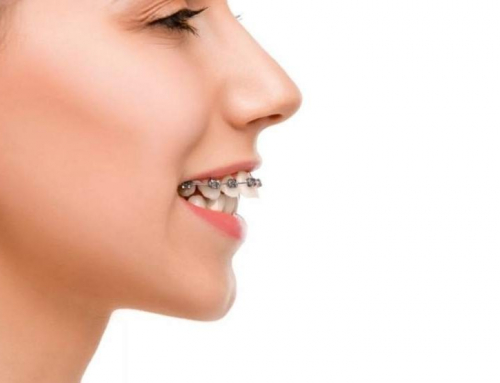
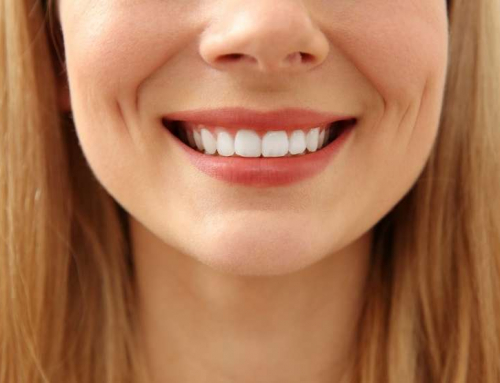
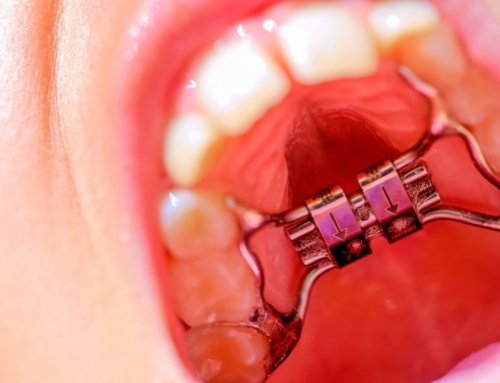
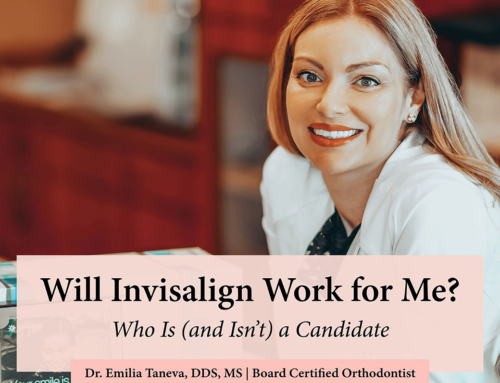
Leave A Comment